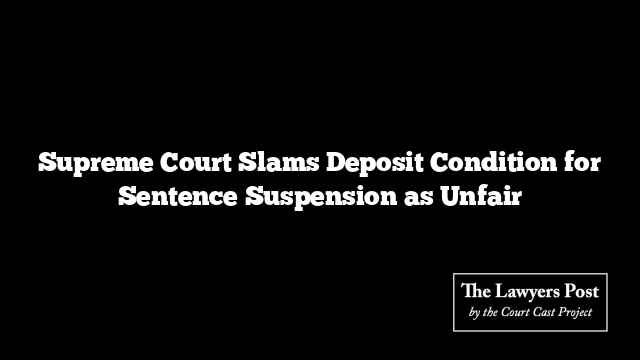In a decisive ruling, the Supreme Court has underscored the necessity for meticulous care in government auctions, penalizing a negligent bidder with a ₹3 crore fine to prevent the misuse of public resources.
Addressing the issue, the court emphasized that seasoned corporate bidders must engage technical experts and exercise exceptional caution to maintain the integrity of the bidding process.
A bench comprising Justice Sanjiv Khanna and Justice Dipankar Datta permitted a new auction for a mining lease, which had been marred by a flawed bid. The highest bidder, despite their oversight, was not let off the hook. The court mandated that the bidder pay ₹3 crore to the first respondent, emphasizing the balance between state interests and private parties.
The case revolved around an e-auction conducted by MSTC Ltd. for the State of Odisha’s Directorate of Mines and Geology. The auction aimed to lease the Orahuri manganese and iron ore block, with the appellant submitting an initial bid on February 17, 2023, backed by a substantial bank guarantee.
During the two-phase e-auction process, which included technical bid submission and final price offers, the appellant’s bid error emerged. Initially set at 84 percent, the auction bids soared to 104.05 percent after 136 rounds. However, at the eleventh hour, the appellant mistakenly entered a bid of 140.10 percent, far exceeding the intended 104.10 percent. Attempts to rectify the error were promptly rebuffed, and the appellant was designated the Preferred Bidder.
Despite numerous appeals and a writ petition, both the Director of Mines and the Orissa High Court upheld the bid’s finality, leading the appellant to seek the Supreme Court’s intervention. The appellant’s senior advocate argued that the erroneous bid was a genuine mistake, given the significant 36.05 percent deviation from the required incremental bid.
In contrast, the respondent’s counsel maintained that the e-auction process was conclusive, bolstered by a digital signature authentication mechanism, which negated the possibility of claiming the bid as a mistake.
The Supreme Court acknowledged the appellant’s prompt reporting of the error and found the respondents’ insistence on the bid’s finality unconvincing. Highlighting the principle of proportionality, the court deemed the forfeiture of the security deposit for an evident human error as excessively punitive.
The ruling annulled the impugned communication, allowing for a new e-auction. It mandated the appellant to pay ₹3 crore, allocating ₹2.75 crore for incurred costs and ₹25 lakh for charitable initiatives benefiting the young tribal population in the mining district.





